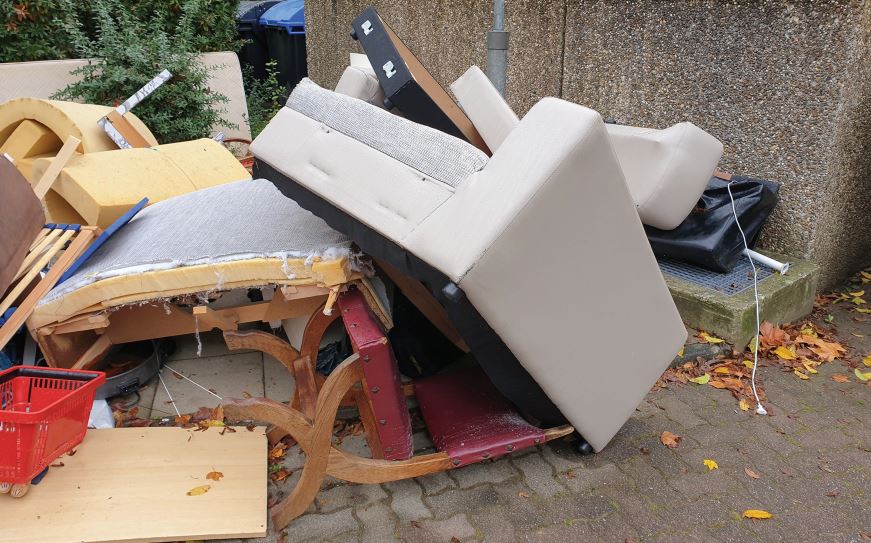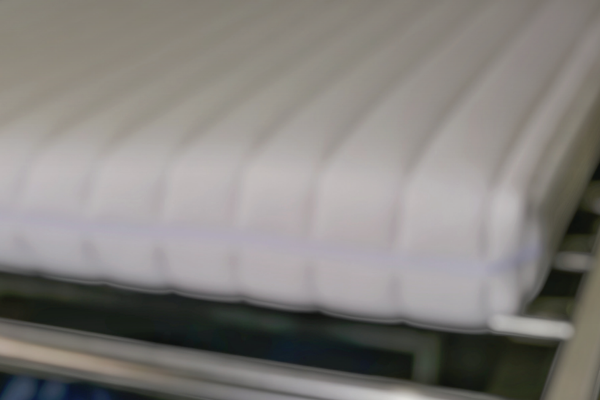The Indian mattress industry has been making several efforts to increase the demand for mattresses among consumers. Most of the market research reports claim that the Asia Pacific region is quite promising to drive growth for the global mattress market. Manufacturers in countries like India, China, South Korea, and Japan have quickly adopted new materials, construction techniques, and sleep technology in their mattress offerings if we go by a report from Brainy Insights. Additionally, the rise of e-commerce platforms and the development of a robust retail infrastructure have made it easier for mattress companies in the region to reach a broader customer base. India is a promising growth region for the global mattress industry. Mattress manufacturers have been leveraging several technologies to deliver unique sleep products. Coupled with other factors like the adoption of the D2C model for a wider consumer base, consumer education about good sleep and growing consumer awareness about good quality sleep products is driving growth in this segment. This means, in the coming years, there will be more demand for good mattresses and hence, ensuring sustainability at all levels of mattress manufacturing is quintessential among Indian mattress manufacturers. While recycling of mattresses or other sleep products is important, companies have realized that sustainability must be ensured right from the material sourcing stage.
Many mattress manufacturers in India are shifting towards using sustainable and eco-friendly materials in their products. Natural and organic materials like organic cotton, bamboo-derived fabrics, natural latex, and coconut coir are being used as alternatives to synthetic materials. These materials are biodegradable, renewable, and have a lower environmental impact. Issues like climate change, and global warming have pestered us to realize the importance of creating sustainable solutions around us. Businesses are willing to invest in research and development to create sustainable solutions in their respective market segments. Sustainability is important for environmental protection, resource conservation, social responsibility, health and well-being, and future-proofing while maintaining economic advantages.
Several mattress manufacturers in India have obtained certifications like Global Organic Latex Standard (GOLS) and Global Organic Textile Standard (GOTS), which ensure that the mattresses are made of organic and sustainable materials and meet specific environmental and health criteria. These certifications guarantee that the mattresses are free from harmful chemicals, VOCs, and other substances that can be detrimental to the environment and human health. Manufacturers are adopting energy-efficient production processes to reduce their carbon footprint. This includes using energy-efficient machinery, optimizing production lines, and incorporating sustainable practices in their manufacturing facilities. Many mattress manufacturers have implemented environmental management systems to ensure responsible use of resources, reduce waste generation, and minimize their impact on the environment. These systems promote sustainable practices throughout the production and supply chain.
While recycling of mattresses or other sleep products is important, companies have realized that sustainability must be ensured right from the material sourcing stage.
Mattress Circular Journey (MCJ) programs and recycling initiatives allow customers to return their old mattresses for proper disposal or recycling when they purchase new ones. The collected mattresses are then dismantled, and various components are recycled or repurposed to reduce waste. Many Indian mattress makers have collaborated with the Indian Sleep Product Federation (ISPF) to offer convenient solutions to consumers to dispose of their old mattresses in the safest manner.
Growing importance of sustainability in the mattress industry.
What happens to our old mattresses, when we give them to some local recyclers or raddiwala. These mattresses eventually end up in some landfills. The traditional mattress industry is to be held responsible for tons of chemical emissions and other pollutants that have serious damaging effects on our planet. Sustainability is not merely a country’s problem or an individual’s responsibility. It is a global issue and must be addressed through well-collaborated and cohesive efforts. The growing adoption of ESG practices among various business groups gives us the impression that businesses are no longer only focussed on their profits and growth but they are also deeply thinking about their responsibility towards the environment.
A large number of Indian consumers are looking at buying mattresses or sleep products from reputed brands because they understand that these brands will ensure good product quality and safety. Mattresses have a significant impact on one’s health and these days consumers are interested in knowing the materials that go into making their sleep surface. Meanwhile, businesses are also paying attention to sustainability to ensure safety for their consumers and workers who are involved in the production of mattresses.
Like their global peers, Indian mattress makers are also taking several initiatives towards ensuring a holistic approach towards ensuring sustainability in mattress production. Companies are employing sustainable measures right from the raw material procurement stage. “Sustainability is a policy adopted by all mattress manufacturers, who are now trying to ensure sustainability at the design stage itself. They ensure that all raw materials used are sustainable,” explains S Sundaresan, Secretary of the Indian Sleep Products Federation (ISPF).

Manufacturers are now prioritizing sourcing materials from responsible suppliers who adhere to ethical labour practices and use sustainable raw materials. Manufacturers are increasingly opting for natural and eco-friendly materials like organic cotton, natural latex derived from sustainable rubber tree plantations, coconut coir, and bamboo-derived fabrics in their mattress manufacturing process. Mattress makers are making deliberate efforts to avoid using harmful chemicals in their mattresses. Instead, they are actively exploring the option of low or zero VOC (Volatile Organic Compounds) materials that will ensure the mattress is free from toxic substances and does not lead the product to off gas.
Ensuring energy-efficient manufacturing processes and creating long-lasting products will ensure less waste generation. “The more you remove the old mattress from this ecosystem, the more new mattresses will be sold” explains Sundaresan.
Effective recycling methods to ensure sustainability
Effective recycling and waste management practices will contribute a lot towards creating a sustainable ecosystem in the mattress manufacturing ecosystem. Manufacturers are resorting to responsible waste management practices and are following a structured procedure for mattress recycling. When it comes to coir mattresses, Nirbhay Gupta, CEO of Coirfit Mattress explains, “About 1,300 tons of cotton fibres and coir (coconut fibre) are extracted from discarded mattresses annually so we strongly believe that the recycling of coir mattresses can contribute to a sustainable environment. Recycling coir mattresses can be effectively carried out by implementing proper collection and recycling processes. We are actively working towards creating partnerships and collaborations with organizations specializing in mattress recycling. By raising awareness and providing convenient recycling options, we strive to ensure that discarded coir mattresses are effectively recycled and their materials utilized in making more eco-friendly products like cocopeat, coir mats, etc. Overall, the recycling of coir mattresses is a valuable step towards creating a circular economy and reducing waste. By implementing efficient collection systems, appropriate disassembly techniques, and finding new markets for the recycled coir, the process can be effectively carried out, benefiting both the environment and the economy.”
Manufacturers are implementing recycling initiatives and collaborating with recycling organizations to establish mattress take-back programs. These programs ensure that mattresses are properly disposed of or recycled, reducing the amount of waste going to landfills. “All reputed brands have now collaborated with ISPF towards promoting sustainability. Now, ‘mega exchange programs’ are also being initiated, in which, brands are giving discounts to consumers who are ready to give back old mattresses. So, now when consumers buy a new mattress and exchange their old one, they are entitled to get a flat discount. Brands will now collect the old mattress, recycle it and use it. Currently, this project is in a pilot stage and is being carried out in Bangalore. Sometime, early next year, this initiative will be rolled out in other cities,” explains Sundaresan.
Brands are increasingly looking at utilizing recycled materials to create a new line of sleep products. One such initiative is King Koil’s ‘Respun’ initiative, which was launched last year by King Koil in the USA. In this initiative, all recycled & recyclable materials are used towards producing the company’s RESPUN line of products. “We are still learning from the response of this line and may introduce it in India in future,” says Archit Gupta, Managing Director of King Koil India.
Last year, Duroflex revamped and extended its eco-friendly range of mattresses and sleep accessories named Natural Living. The company had introduced mattresses, mattress toppers, pillows, and bed linens made entirely of natural materials – 100 percent Natural Latex, Rubberised Coir, Cotton, Tencel, and Ethicot.
Road ahead for sustainable sleep products in India
The Indian mattress industry is actively working on raising awareness and educating consumers about the importance of sustainability. Companies are sharing information about their sustainable practices, eco-friendly materials used, and the benefits of choosing sustainable mattresses. With the effects of climate change becoming more apparent every passing year, sustainable products and recycling initiatives will become a regular practice in the entire mattress production lifecycle.
“Companies are increasingly becoming conscious about sustainability because a bigger set of customers understand sustainability better. More than, technology enables sleep products, consumers are showing more acceptability towards sustainable sleep solutions,” explains Vijay Palanna, Director, Empulse Research and Data Analytics. The Indian bedding industry is working cohesively to create more sustainable and chemical-free products that will contribute towards waste reduction and make recycling processes easier. As sustainable products and initiatives appeal to consumers more, manufacturers will now have an additional responsibility towards their consumers to adopt a holistic approach towards sustainability. Additionally, they also have to showcase their certifications that would prove their commitment towards sustainability.


